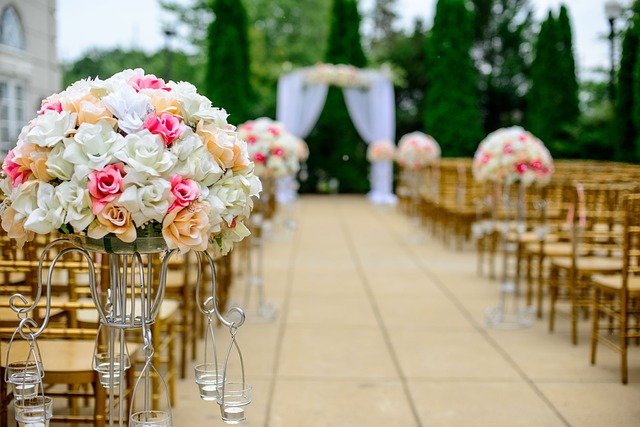Wedding Halls & Venues: Planning Rooftop and Indoor Celebrations
Choosing the right wedding hall or venue shapes the tone of your event, whether you prefer a rooftop ceremony under the sky or an elegant indoor reception. Consider guest comfort, acoustics, vendor access, and how the space supports your vision for a party or more intimate celebration. This article outlines practical considerations for rooftop spaces, party logistics, celebration scale, birthday or related events, and essential venue logistics.

Rooftop: what to check before booking?
A rooftop venue can offer dramatic views and a memorable backdrop for photos, but it also introduces specific constraints. Confirm weight limits, structural safety, and whether the rooftop has proper railings and barriers. Ask about weather contingencies, since wind and rain can affect decorations, sound equipment, and guest comfort. Ensure there is adequate shade or heating options for seasonal comfort.
Also verify access for vendors and guests: elevators that fit staging equipment, stair access for vendors, and proximity to loading zones. Check whether the rooftop has restrooms or requires guests to use facilities on lower floors. Insurance requirements and liability waivers are especially important for open-air rooftops; request proof of insurance from the venue and from outside vendors when applicable.
Party flow: timing, vendors, and layout
Plan the party flow early: a clear timeline reduces delays and helps vendors coordinate deliveries and setup. Identify where the ceremony, cocktail hour, dining, dance floor, and photo areas will sit so you can visualize guest movement. For a rooftop party, designate sheltered staging zones for catering and a backup area if weather forces a move indoors.
Coordinate with preferred vendors about load-in windows and power access. Ask whether the venue provides in-house lighting and sound or recommends local suppliers. Lighting design, in particular, transforms a rooftop at night; confirm if the venue allows string lights, lanterns, or haze machines and whether additional permits are needed for amplified music.
Celebration scale: matching guest list and space
Match the guest list to the venue’s capacity while allowing room for comfortable circulation. Halls with fixed seating layouts are ideal for formal ceremonies, while flexible venues work better for mixed-use events combining dining and dancing. Keep sightlines in mind so guests can see the ceremony and the head table; staggered seating and platform options improve visibility in wider spaces.
If you plan a multi-day itinerary with rehearsal dinners or birthday-style gatherings around the wedding, ensure the venue supports staggered events or has separate rooms for private moments. For rooftop celebrations with limited square footage, consider smaller entertainment elements and a curated guest list to maintain intimacy without overcrowding.
Birthday and pre-wedding events at a venue
Venues that host weddings often accommodate birthday parties, engagement celebrations, rehearsal dinners, and bridal showers. When combining a birthday element with a wedding weekend, clarify which spaces are available for private events and whether the venue charges separate setup fees. Make sure the mood and décor rules are compatible—some venues restrict confetti or open flames, which could affect themed birthday celebrations.
Discuss timing to avoid conflicts between multiple events, and confirm whether vendors can stay between functions to minimize teardown and setup stress. If you plan a daytime birthday celebration on a rooftop, confirm shade options and the availability of restroom and catering access to keep guests comfortable throughout the day.
Venue logistics: permits, accessibility, and safety
A good venue will be transparent about permits, noise restrictions, and local rules. For rooftop or outdoor celebrations, check local ordinances for amplified sound curfews and whether special event permits are required for alcohol service or amplified music. Ask if the venue handles permit applications or if the responsibility falls to you or your planner.
Accessibility is essential—verify elevator access, ramp availability, and restroom accessibility for guests with mobility needs. Safety measures like non-slip flooring, emergency lighting, and clear evacuation routes are critical for rooftop events. Confirm whether the venue requires security staff for larger parties and whether they provide or recommend certified personnel.
Conclusion
Selecting a wedding hall or venue involves balancing aesthetics, logistics, and guest experience. Rooftop spaces can deliver memorable views but require careful attention to weather, safety, and access. Plan party flow and vendor coordination early, match the celebration scale to the space, and confirm rules for birthday or ancillary events. Prioritizing permits, accessibility, and contingency plans will help create a smooth, well-organized celebration.




